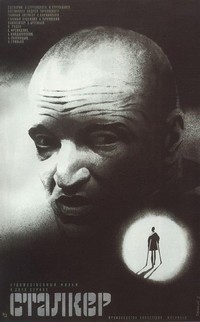
Stalker (1979)
Сталкер

Raiting: ![]() 8 /10
8 /10
Genre: Mystery
Director: Andrei Tarkovsky
Stars: Aleksandr Kaydanovskiy, Anatoliy Solonitsyn and Nikolay Grinko
Country: Soviet Union
Release date: 25 May 1979
Length: 163 minutes


Raiting: ![]() 8 /10
8 /10
Genre: Mystery
Director: Andrei Tarkovsky
Stars: Aleksandr Kaydanovskiy, Anatoliy Solonitsyn and Nikolay Grinko
Country: Soviet Union
Release date: 25 May 1979
Length: 163 minutes